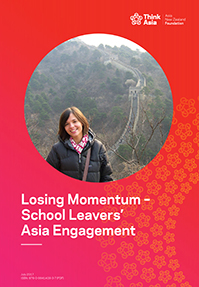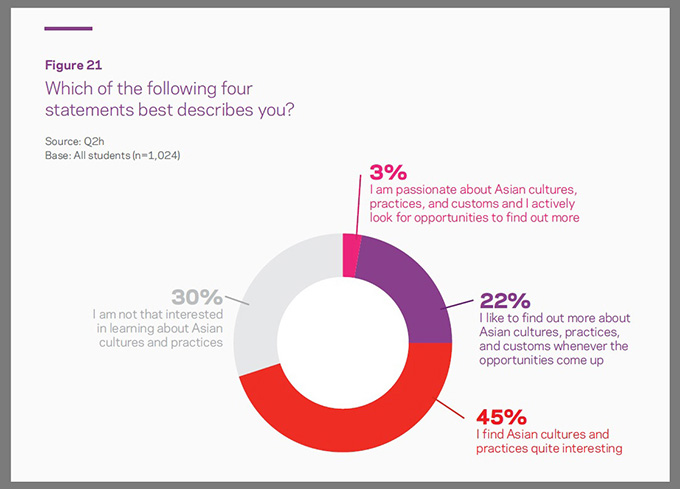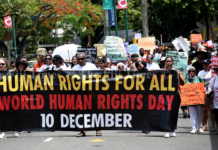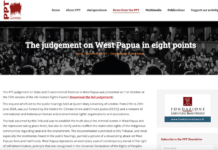
Pacific Media Centre Newsdesk
Less than 10 percent of school leavers are “Asia-ready” and only 36 percent are “in the zone” when it comes to Asia readiness, shows new research released by the Asia New Zealand Foundation.
The Foundation’s Losing Momentum – School Leavers’ Asia Engagement report also finds that while 69 percent of senior secondary school students believe Asia is important to New Zealand’s future, only 37 percent believe Asia-related skills and knowledge will be important for the country’s future workforce.
In 2012, when the foundation first surveyed school leavers, 46 percent believed it would be important.

High school students studying Asian languages discuss why more students are not taking an interest in learning about Asia and what could be done to raise the numbers.
The survey also reveals 18 percent either “do not believe Asia is important to our future” or “have no interest in Asia or Asian cultures”.
“This is a concerning trend given New Zealand’s present and future – economically, culturally and socially – are tied to Asia,” says Asia New Zealand Foundation executive director Simon Draper.
“If this continues, our kids will likely miss out on life-changing opportunities brought about by the rise of Asia’s influence and relevance to New Zealand.”
Businesses seeking Asian-related skills
Draper noted businesses were increasingly looking for employees who had Asia-related skills and knowledge – and they are not getting those skills.
“All indicators show Asia will play a critical role in young New Zealanders’ careers, their personal relationships, and their life experiences. Developing Asia-related competencies will be a necessity for their future.”
The survey also shows general knowledge of Asia has decreased. Students scored less than six out of nine on basic Asia questions, a small drop from 2012.
“These trend lines are in the wrong direction. There needs to be a course correction if we want school leavers to thrive in the Asian century,” says Draper.
The survey revealed an urban-rural and socio-economic divide.
Those who feel they know nothing about Asian countries – about one in five students – are more likely to come from the two lowest deciles, are likely to be Māori or Pasifika, and live in a small town or rural area.
“We don’t want a two-tier system when it comes to Asia-readiness. This is a bad outcome and is unfair,” says Draper.
‘Meaningful conversation’
“We hope this report prompts schools, parents, students, educators, officials, and community groups to engage in a meaningful conversation about whether we should formalise learning about Asia in our education system.”
On the positive side, the survey revealed those who said they could not describe anything about any Asian country tended to answer four out of nine Asia-knowledge questions correctly.
“These kids obviously know more than they give themselves credit for and this is similar to what we found in our annual Perceptions of Asia survey released earlier in the year, said Draper.
The research is based on the foundation’s Asia-Readiness Framework and this report is drawn from the foundation’s findings.















































